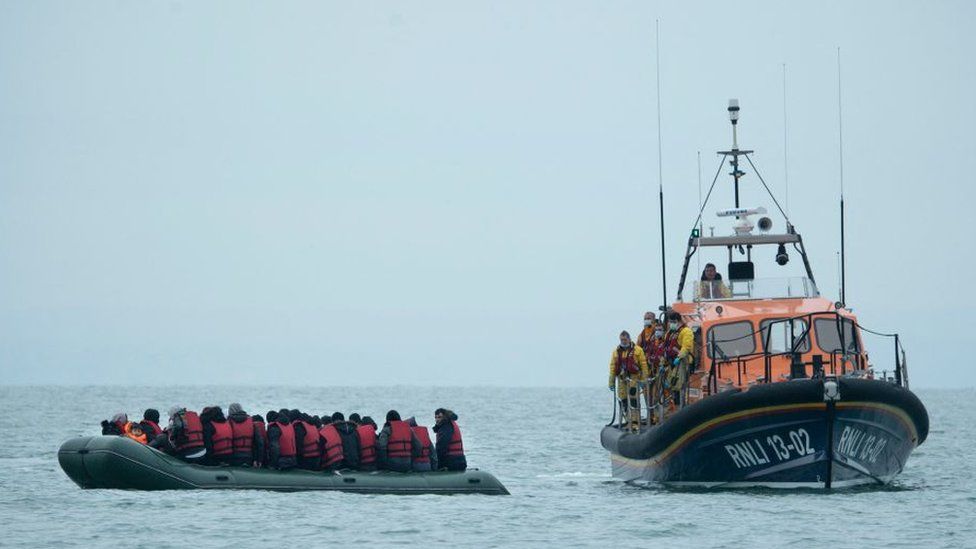ARTICLE AD BOX
 Image source, Getty Images
Image source, Getty Images
By Becky Morton
Political reporter
A Lib Dem peer is seeking to block the government's Illegal Migration Bill as the plans are set to face significant opposition in the Lords.
Lord Paddick intends to put forward a rare "motion to decline" on Wednesday.
If the motion is passed the bill would have to be dropped - although with Labour not expected to support it, this is unlikely to happen.
The legislation, which has already been approved by MPs, aims to stop people crossing the Channel in small boats.
Prime Minister Rishi Sunak has made the issue one of his key priorities ahead of the next general election, which is widely expected next year.
The bill will place a legal duty on the home secretary to detain and remove those arriving in the UK illegally, to Rwanda or another "safe" third country.
This has prompted outrage from opposition parties and charities, which argue the bill is unworkable and could breach international law.
The motion is due to be put forward after peers debate the bill for its second reading, which is when MPs or peers debate the main principles of the proposed law, rather than examine it in detail.
Lord Paddick, a former Met Police deputy assistant commissioner, argues the bill fails to meet the UK's commitments under international law and removes the legal right of refugees to claim asylum in the UK.
He told the BBC the Lib Dems could not find "any redeeming features" in the bill, which he said was "unprecedented" in the way it ran contrary to the rule of law.
"As a matter of principle we can't possibly allow this bill to continue," he said.
"If we thought that there was some way of changing it in order for it to achieve the purposes that the government set out for it, then we would take a different approach."
If the motion is agreed the bill would be dropped from the Lords and would have to be reintroduced by the government in the Commons from scratch.
However, a Labour Lords source said the party was not supporting the motion, making it unlikely to pass.
The source said that if the motion was successful, the government could just use the Parliament Act to introduce the bill, without peers getting the opportunity to make any amendments.
"It is therefore an irresponsible way to deal with legislation that has already gone through the elected House," they added.
The source described the bill as a "gimmick" which "won't deal with the major problems and misery caused by those who traffic and exploit vulnerable people".
The government made a series of concessions over the bill to different sections of the Conservative Party, to see off rebellions during its progress in the House of Commons.
However, it could still be heavily amended in the House of Lords.
The government has also faced strong criticism from senior Tories, including former Prime Minister Theresa May and former Tory leader Sir Iain Duncan Smith, over the potential impact of the bill on victims of modern slavery.
The bill would take away temporary protections against removal from the UK that are currently offered to suspected victims of modern slavery or human trafficking while their case is considered.
Critics say this could deter victims from going to the police.
There has also been concern, including among Conservative MPs, over new powers in the bill to detain children on the suspicion that they are liable for removal.
Ministers have agreed to work with Tory MPs on a time limit for how long unaccompanied children can be detained.
To get the bill through the Commons, ministers also promised to set out new safe and legal routes for asylum seekers, after pressure from backbenchers.

 1 year ago
24
1 year ago
24








 English (US)
English (US)